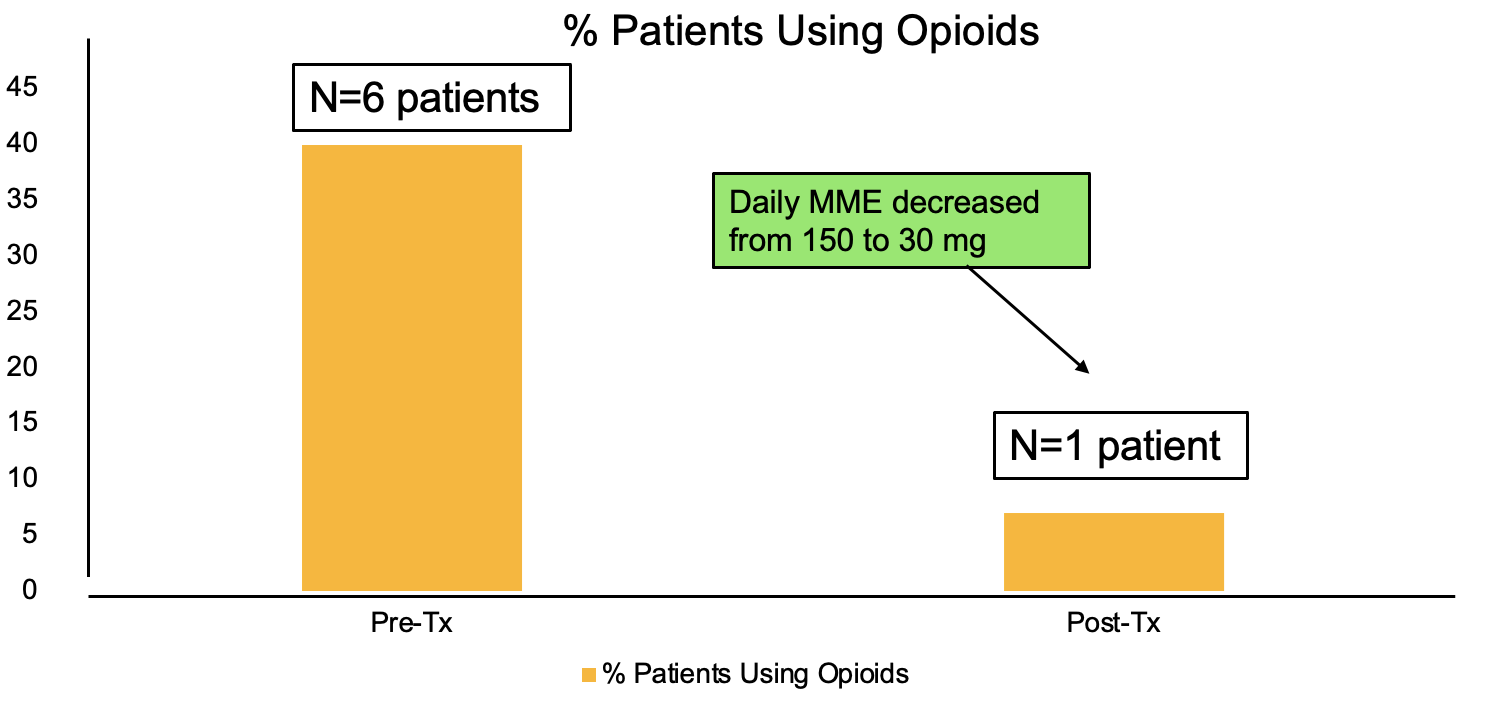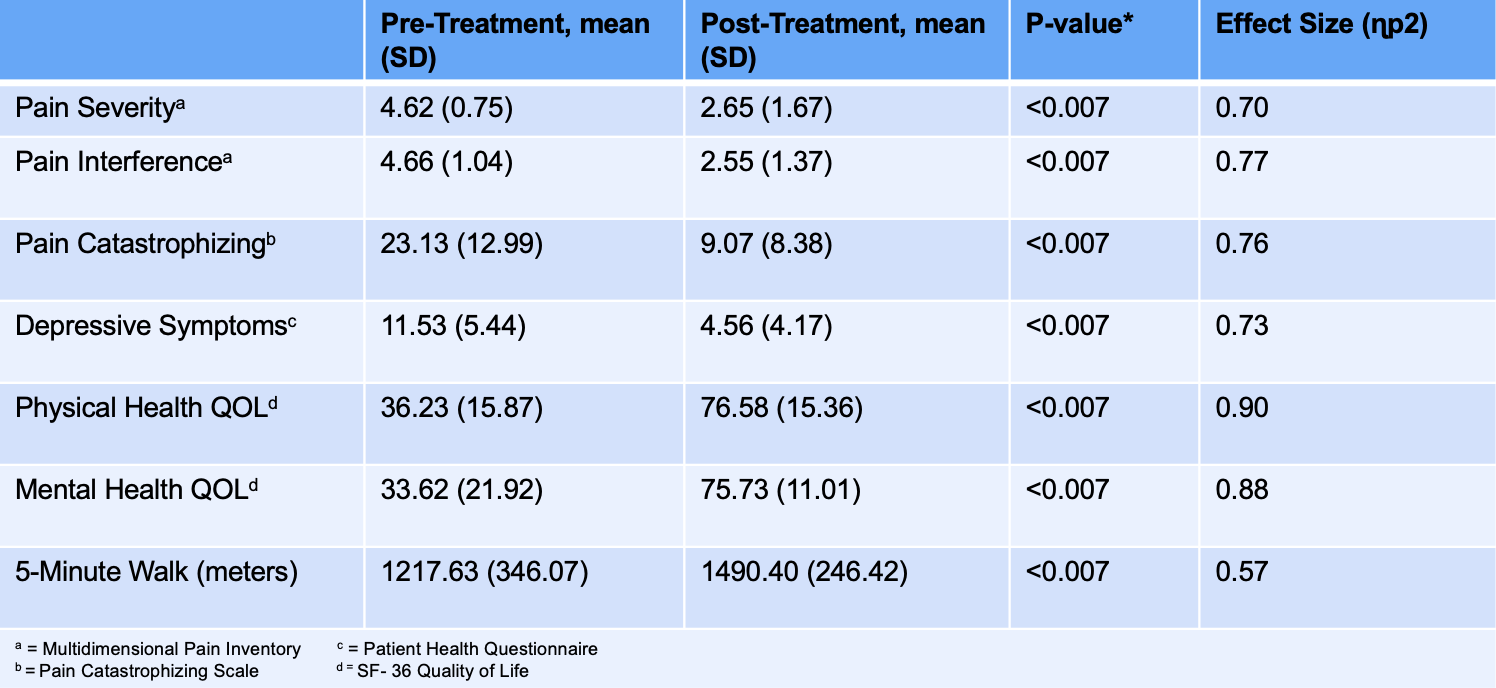Back
Poster, Podium & Video Sessions
Moderated Poster
MP35: Sexual Function/Dysfunction: Medical, Hormonal & Non-surgical Therapy I
MP35-16: Improving quality of life for patients with chronic pelvic and genital pain through an Interdisciplinary Pain Rehabilitation Program
Saturday, May 14, 2022
4:30 PM – 5:45 PM
Location: Room 222
Kevin Hanna, M.D.*, Matthew Ziegelmann, M.D., Hannah Betcher, M.D., Sevann Helo, M.D., Elizabeth Kacel, Ph.D., Wesley Gilliam, Ph.D., Rochester, MN

Kevin F. Hanna, MD
Mayo Clinic
Poster Presenter(s)
Introduction: Chronic pelvic and/or genital pain is a disabling condition and commonly associated with poor quality of life, impaired sexual function, and decreased productivity.
Methods: A series of within-subject ANOVAs (corrected for multiple comparisons) were used to evaluate the effectiveness of an Interdisciplinary Pain Rehabilitation Program (IPRP) on self-reported (pain severity, interference, depressive symptoms, quality of life) and observer-rated outcomes (5-minute walk) among 15 patients receiving care at the Mayo Clinic IPRP between 2016-2018. Additionally, opioid use of participants was assessed throughout the program via total daily Morphine Milligram Equivalents (MME).
Results: Fifteen patients (5 male, 10 female) were identified. Mean age was 47.0 (range: 24-78) and primary diagnoses were pelvic pain (n=13) and penile pain (n=2). Significant within-subject effects were detected for all self-report outcomes and the 5-minute walk test (Table 1). Six patients were on opioid therapy (MME = 49mg), and all but one successfully tapered off opioids. In the remaining patient, daily MME decreased from 150 mg to 30 mg (Figure 1).
Conclusions: Intensive outpatient IPRP significantly improves quality of life for patients with treatment-refractory chronic pelvic and/or genital pain. These results support multi-disciplinary treatment paradigms for refractory urogenital pain.
Source of Funding: None


Methods: A series of within-subject ANOVAs (corrected for multiple comparisons) were used to evaluate the effectiveness of an Interdisciplinary Pain Rehabilitation Program (IPRP) on self-reported (pain severity, interference, depressive symptoms, quality of life) and observer-rated outcomes (5-minute walk) among 15 patients receiving care at the Mayo Clinic IPRP between 2016-2018. Additionally, opioid use of participants was assessed throughout the program via total daily Morphine Milligram Equivalents (MME).
Results: Fifteen patients (5 male, 10 female) were identified. Mean age was 47.0 (range: 24-78) and primary diagnoses were pelvic pain (n=13) and penile pain (n=2). Significant within-subject effects were detected for all self-report outcomes and the 5-minute walk test (Table 1). Six patients were on opioid therapy (MME = 49mg), and all but one successfully tapered off opioids. In the remaining patient, daily MME decreased from 150 mg to 30 mg (Figure 1).
Conclusions: Intensive outpatient IPRP significantly improves quality of life for patients with treatment-refractory chronic pelvic and/or genital pain. These results support multi-disciplinary treatment paradigms for refractory urogenital pain.
Source of Funding: None



.jpg)
.jpg)